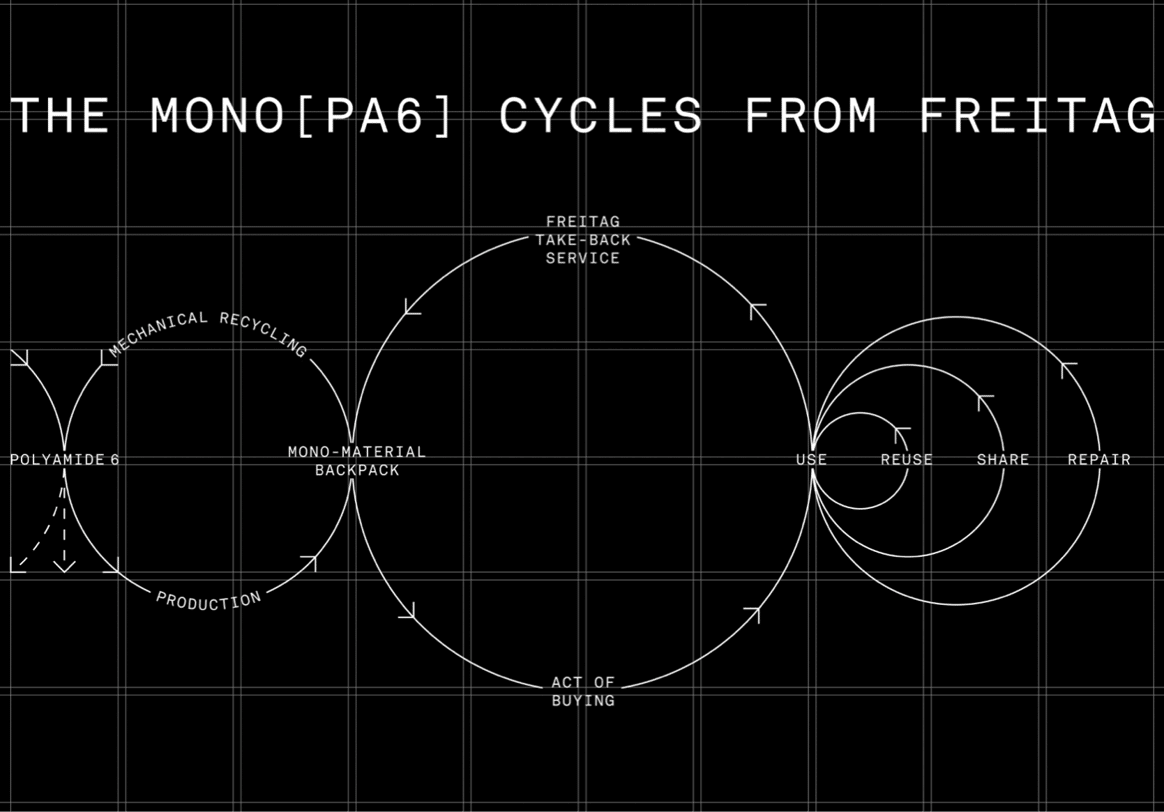Engaged in the clothing industry for 20 years.

Swiss bag maker Freitag presents first fully recyclable backpack
Swiss bag maker Freitag unveiled its first fully recyclable backpack made from just one material on Wednesday; now the first circular backpack without truck tarp is slated to go into production.
“It’s not enough to develop products that can be recycled. We have to take a holistic approach to the design of our products, keeping the end of their lives in mind and making sure that everything circular actually goes back into the cycle,” said Anna Blattert, circular technologist at Freitag, in a statement.
[Mono]PA6 made of a single material
To make the recycling process as simple as possible and to maximise the actual recycling rate, Freitag opted for the principle of mono-materiality, a decision that eliminated the discarded truck tarps that the brand uses. After an „intensive material and market analysis“, Freitag decided to use polyamide 6 – or PA6 for short, also known as nylon.
The advantage of this particular synthetic material is that it is versatile, well suited for long-lasting, resilient products and particularly easy to recycle. But making everything out of the same material was easier said than actually developed and sourced for Freitag.
“We weren’t interested in making simple carrier bags so much as functional, durable and, above all, water-repellent Freitag products made of just one material. We didn’t expect that a reduction in the number of materials would increase the complexity of the project – especially in regards to sourcing – so drastically,” revealed Blattert.
Together with a partner from Taiwan, Freitag had to become creative because a waterproof fabric made of polyamide 6 did not yet exist, even after much research. So instead of coating an existing fabric to make it waterproof, they tried to make a triple-layer laminated material in which the lining, the waterproof membrane and the outer fabric were all made of PA6.

New material is waterproof
“After a little over two years and many rounds of testing – among others with the engineering faculty at the Albstadt-Sigmaringen University of Applied Sciences in Germany – the moment of truth had come. The Freitag PA6 fabric passed its durability and water impermeability tests convincingly,” recounts Freitag.
To also make the product design circular, the bag maker worked with British designer Jeffrey Siu, who kept cycle culture in mind. “Polyamide 6 can assume very different forms; it can be robust or soft and used as a mesh or waterproof textile. Combining the diversity of a single material in a backpack while continuing to sustain the core of the Freitag ethos with products suitable for cycling was incredibly exciting and challenging,“ said Siu.
It was also important that the functional and durable backpack could be recycled as a whole and without time-consuming disassembly. The proportions of other materials were kept so low that mechanical recycling would be possible, such as the spots of adhesive for lamination, the printing ink for the inner label and the zipper slider, which was reinforced with glass fibres.
At KATZ Aarau, Switzerland’s platform for plastics technology, the complete prototypes were first shredded in a granulator and then extruded into high-grade PA6 granulate. “These tests confirm that, when the time comes, Freitag Mono[PA6] backpacks will give rise to something new,” concluded the bag maker.

An old backpack will turn into recyclable polyamide 6
The confirmation of the product’s mechanical recyclability was reason enough for Freitag to launch the production of the first 1500 Mono[PA6] units. They will be made of virgin PA6, a non-recycled material, and are expected to be available in spring 2024 together with a repair concept and a take-back process.
Only when “all the life-extending options, such as repair and reuse, have been exhausted and the product has reached the end of its life, it returns via the Freitag take-back service to the open-loop material cycle and can be mechanically recycled into reusable raw polyamide 6,” concluded Freitag.